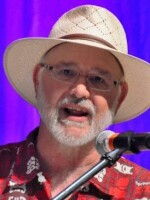In the aftermath of the August 2014 police shooting of 18 year old Michael Brown of Ferguson Mo., Governor Jay Nixon directed the Mo. Dept. of Public Safety and the Peace Officers Standards and Training Commission (POST) to submit by December 1st, new rules to improve access to effective and ongoing training for Missouri law enforcement officers in 3 key areas: 1. Tactical Training, including de-escalation skills. 2. Fair and Impartial Policing. 3. Safety, Health and Well-being of Officers. The goal is to enhance safety for citizens and law enforcement officers alike.
To that end, a series of public meetings around the state seeks input from the public and peace officers on changes to law enforcement training requirements. The POST Commission’s first meeting in Missouri was Sept. 1st at Ozarks Technical Community College in Springfield.
15 members of the public and peace officers addressed the 7 member POST Commission with questions and comments including:
Cheryl Clay, president of the Springfield chapter of the NAACP: “My suggestion is to reaffirm the need for diversity training, especially to address personal bias’s that may affect an officer’s decision making process and subsequent actions."
“It’s not because your white and I’m black," noted this unidentified woman. "It’s because people are people, and that’s how you approach….as a person. Not as a black person, not as a white person, but as a person.”
“One of the things I’d like to see is to update sexual assault investigation training for our officers,” said Tom Johnson, Missouri State University director of Safety and Transportation.
Dana Ault added, “The Mo. Autism Report Magazine, our readers and our support organizations would like to urge the Mo. Public Safety Department to provide mandatory Autism risk and safety management training for all police officers on how to recognize, approach and assist a person with Autism.”
“I find it (training) difficult in small departments, and a large part of SW Mo. is policed by small agencies," explained Ron Hutchison, a 21-year veteran of the Springfield police officer and former chief of the Marionville Police Department. "We’re talking 4 or 5 cops. Their training is not there. First of all I can’t afford to let the guy or gal off the street, and plus it costs money. We didn’t have any money, so we would look for whatever free training we could to meet the standards…and we met the standards.”
Missouri Director of Public Safety Lane Roberts leads POST, and the Sept. 1st POST Commission meeting at OTC.
“I was very pleased with the turnout," he said. "It looked like we had a broad range of interest, which is exactly what we’re looking for. I have to deliver to the Governor by December 1st, proposed new rules which will then go to the Secretary of State, and hopefully be implemented as soon as possible. What we want to do is promulgate rules that will actually result in efficiencies, actually result in greater trust, and actually result in greater safety for citizens and officers. These are things that need to be done, that can be done. Among the challenges we face is to get more training to the smaller agencies, and we’ll be looking at ways to bring the training to them.”
Paul Williams is a POST Commissioner and serves as Springfield Missouri’s Chief of Police.
“POST has been around 25 or 30 years. It sets the minimum standards for policing. Right now it’s 600 hours minimum before taking the exam to become certified as a police officer or a deputy in the state, and then there’s continuing education training set at 48 hours over a 3 year period," said Williams. "So potentially maybe increasing the standards right now, but the number of hours is a statutory provision set by the MO. Legislature, and we can’t arbitrarily change the minimum standards. But we can as a commission look at what that training is. Are we teaching the right stuff, or can we change that up? And should there be mandated training that we’re not offering. Right now there’s very little mandated training, for instance 1 hour a year, 3 hours in 3 years for racial profiling training.”
Springfield Police officers receive nearly twice the minimum training hours, and on-going continuing education hours as required by POST.
Among the 7 POST Commissioners present at the Sept. 1st meeting in Springfield was Mo. Highway Patrol Captain Ron Johnson. In August 2014, Johnson commanded law enforcement operations in Ferguson.
“My main goal then was to make sure the public was safe, and law enforcement was safe," said Johnson. "Hopefully at the end we had a better understanding of each other, and I think at the end we knew we had a lot of work to do. We’re seeing the community and law enforcement make small steps to come together and understand each other better. We’re making small steps in education process in the area, jobs, etc. So it’s going to take small steps by the entire community to make us better.”
It seemed to this reporter during the meeting that Captain Ron Johnson had a lot on his mind, but at the same time was listening intently to the proceedings.
“Today I sat there and listened. I didn’t really make any comments. I want to be a listener here so at the end when we put something together (the report and recommendations) that has strength and merit in it, but also has change in it, so we can make sure to get it right for everyone involved.”
Written comments from the public on proposed changes to peace officer training requirements can be e-mailed to post@dps.mo.gov through October 15th.













